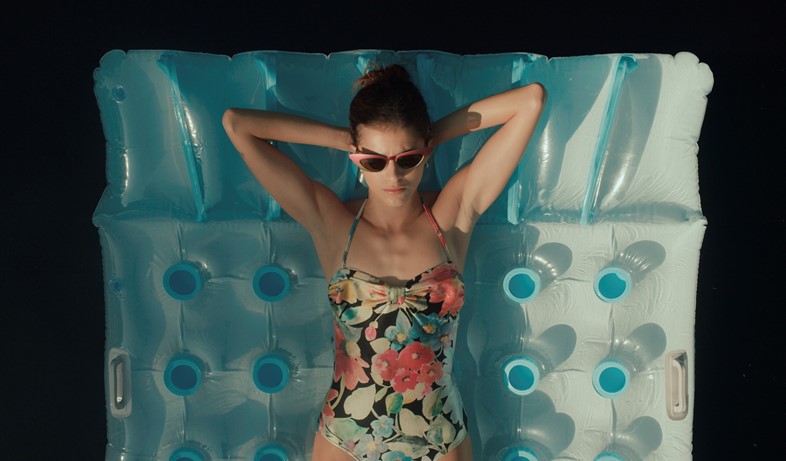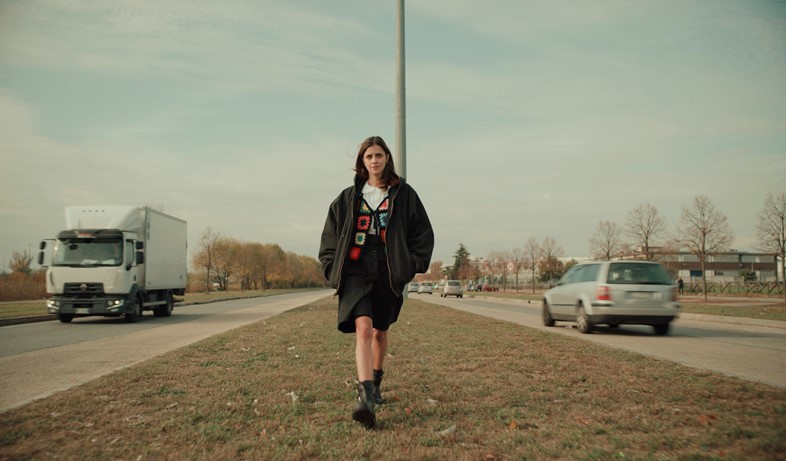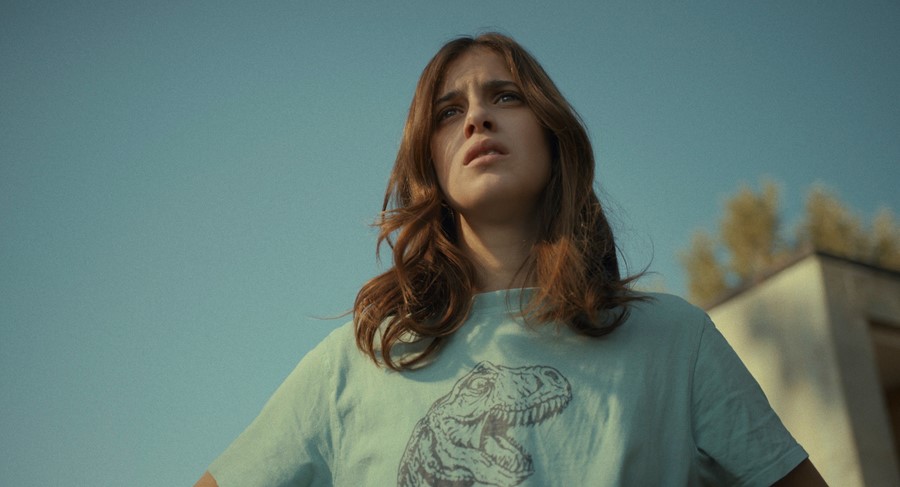“For me, it was very natural; it’s a story of women,” says director Carolina Cavalli of her debut feature, which centres on a young misfit adrift in Turin
“Sometimes I have this feeling that when I go to watch a film, I kind of have a date with the director,” says Italian filmmaker Carolina Cavalli. “To be honest, the best dates.” Cavalli’s debut film, Amanda, centres on a young misfit adrift in Turin, and inspires the same feeling about both its protagonist and director.
Dressed like a cross between MTV’s Daria and a Catholic schoolgirl, with no overlay of self-consciousness, Amanda is like a three-dimensional animé creation – an alien in modern life. Born into a weird, wealthy family and recently returned to dull northern Italy from France, Amanda is on a mission: to make a friend, find a boyfriend and get a job. Unschooled in social cues and completely without filter, she wreaks offence and misunderstanding all over town, forcing connections with unwilling targets that include her family’s housekeeper, a boy from a nightclub, and Rebecca, a girl Amanda apparently knew as a toddler who is now a recluse. That Amanda ends up stealing a horse is testament to her inability to make nice. “I feel it’s much harder to make friends when you’re an adult than when you’re a child,” Cavalli says.
It would be easy to pathologise Amanda or demand that she check her privilege, but the discourse doesn’t seem to have reached her and she would argue that she’s fine. “I felt there was a bit of a children’s book heroine in her, like Pippi Longstocking,” says Cavalli. (Swiss artist Pipilotti Rist’s gleefully destructive take on the children's heroine might be closer to the mark.) “I was wondering about [such characters]: how are they going to be when they grow up? And it was sad to imagine that they would change completely, become different,” says Cavalli. “I feel Amanda maintains a lot of the characteristics of children and it’s something that interests me in adults, when they have some childlike [behaviours] that they haven’t abandoned or that come out in little moments.”
Amanda could easily fall prey to whimsy but Cavalli’s assured, idiosyncratic authorship keeps things mordant and zesty. Compared to her peers, though, she came to auteur cinema relatively late. “I watched a lot of TV and pop culture and films that are maybe considered B movies,” Cavalli says of her teenage years, imbibing a stream of stock characters that were ripe for twisting. “I wasn’t choosing, I was just watching whatever was on, the way TV used to work. And then when I was a bit older, at university, I started to have preferences about auteurs.”

One of them is the award-winning Italian Paolo Sorrentino, who attended a technical screening of Amanda and gave Cavalli some invaluable craft advice. “People say a lot of things, and they don’t do them, but he actually came,” she says, still wowed by the fact of his attendance. Sorrentino’s generosity and curiosity were inspiring. “This is how you create a dialogue that is intergenerational, but it’s very rare.”
Also rare is the female focus of Cavalli’s debut. “For me, it was very natural; it’s a story of women,” she says, “and I realised after writing [the script] that it’s mainly about relationships between women – different ones, like mothers and daughters, sisters, best girlfriends. And the men are present in their absence.” Benedetta Porcaroli is brilliant as Amanda, filling every frame with combustible energy. So too are Giovanna Mezzogiorno as Rebecca’s nervy mother and Margherita Maccapani Missoni as Amanda’s world-weary older sister, Marina.

“I couldn’t cast that role, it was very difficult and I did a lot of auditions,” says Cavalli of Marina’s character. “And then I thought of Margherita.” Cavalli is childhood best friends with Missoni’s younger sister Teresa, and they were both awed, growing up, by Missoni’s glamour. “She was going to these parties all the time in the fashion world. We were very different, very shy, so there was this admiration – but also fear! And I thought she would be very good in the role.”
Though busy with Amanda’s release, Cavalli is working on her next project. A natural writer (last year she published a novel, Metropolitania, that’s been described as a psychedelic Thelma & Louise), she dreams of spin-offs for her characters. The process almost always starts with dialogue, a singular voice and some piquant bit of speech that leads ultimately to the question – “who would say this?”
Amanda is out in UK cinemas now and streaming on Curzon Home Cinema.
